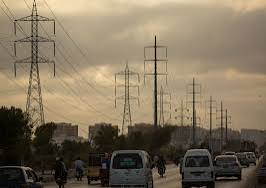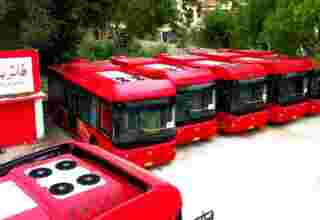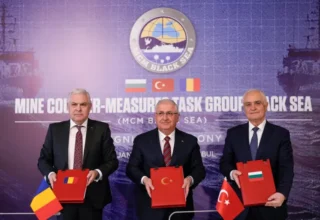ISLAMABAD, Dec. 3 (INP): Taking advantage of robust China-Pakistan collaboration on electric vehicle (EV) ventures, Pakistan has launched a decarbonization plan in Public Transport Sector, as 43 percent carbon emission emitting from petrol-run transport vehicles on roads, Gwadar Pro reported it on Saturday.
As part of the plan, Punjab government is gearing up to introduce 500 Chinese buses in the first phase in the province, house of more than 100 million people that are desperately in want of environment-friendly public transport.
According to sources in Punjab Secretariat, in order to make it possible for running Chinese electric buses in Lahore, government has greenlighted Punjab Transport Company (PTC) and Punjab Mass Transit Authority (PMTA) to proceed with administrative, technical and financial procedures and viabilities.
Lahore, capital of Punjab, is one of the worst polluted cities in the world. The Chinese Electric Buses plying on roads will help mitigate environmental hazards especially smog that often keeps engulfing the entire city, said by Environmentalist Ayub Minhas.
On the back of 2022 budget’s major allocations on Electric Vehicle, Pakistan will switch over to 30 per cent electric vehicles by 2030 under the National Electric Vehicles Policy that will reduce the import bill by $2 billion every year, cut pollution, fulfil “Clean Green Pakistan” and realize commitments on UN Sustainable Development Goals (SDGs) on environment.
Talking to Gwadar Pro, Punjab Mass Transit Authority (PMTA) General Manager Syed Uzair Shah said that thorough deliberations to examine financial viability of electric buses is in full swing. After Punjab Transport Authority succeeds to launch them, PMTA will step forward accordingly, he added.
On a query regarding the fleet of 500 buses, he said that in this regard plan is on go as it has been decided already in principle by Punjab government.
In collaboration with BYD China, the world’s largest producer of electric vehicles, Pakistan has already piloted the EV buses initiative in Lahore. Previously, the same bus did experimental trips in Islamabad.
An electric bus with zero smoke emission has begun running on Lahore roads as a test project. Every day, the bus makes two trips from the Punjab Transport Company’s (PTC) main station to Valencia Town.
Last month, Pakistan’s first electric buses hit roads in Karachi, again credit goes to China-manufactured electric buses. The Sindh government conducted a test trial of electric buses.
Talking to media after the test run, Sindh Transport Minister Sharjeel Inam Memon said that the buses will be available to commuters soon. Chinese buses can cover 240 kilometres on a single charge of 20 minutes. The electric passenger vehicles ran between Sindh Archive Complex and Sea View during the trial run. The Sindh transportation authority received a fleet of 50 electric buses.
To reduce greenhouse gas emissions in accordance with the Paris Climate Agreement, the Pakistan government recently approved an ambitious National Electric Vehicles Policy (NEVP).
The policy aims for an almost complete replacement of Internal Combustion Engine Vehicles (ICEVs) with Electric Vehicles (EVs) in new car sales by 2040.
Since the EV policy comes into operation, many Chinese enterprises in e-buses manufacturing have entered Pakistan promising the Pakistani government to reduce carbon emission on roads.
Chinese auto manufacturer Skywell Automobile also planned to invest $50 million to launch electric buses in Pakistan. Under the agreement, Skywell Automobiles China and Daewoo Express Pakistan will collaborate to introduce electric buses and other electric vehicles in Pakistan and create a technical support base in the country.
Recently, under Chinese brand HAVAL, the leading automotive manufacturer, Sazgar Engineering Works Limited (SEWL) launched Pakistan’s first locally assembled hybrid electric vehicle (HEV) .
With an estimated foreign direct investment (FDI) of Rs663 million and local investment worth Rs637 million, Chinese company “MG JW Automobile” is also set to establish an electric car manufacturing plant in the first private special economic zone (SEZ) in Raiwind, Punjab.
In partnership with China, Topsun Motors (Pakistan), the first-ever electric car company has been launched in the country. The Joint Venture cut the ribbon on its showroom called Topsun MR Motors on in Jail Road Lahore.
Chinese Electric Car called “Wuling HongGuang Mini EV”, is also in phase of preparation to get launched in Pakistan market. The Wuling HongGuang Mini EV is manufactured through a joint venture between China’s Wuling, Chinese state-owned automaker SAIC Motor, and General Motors.
DEZHOU-Pakistan’s EV sector is embracing Chinese investor as a group of five local enterprises signed a MoU with China’s Songuo Motors on the Songuo-Pakistan e-Trike & BSS Pilot Project. The move is to export Songuo electric bicycles, electric tricycles and EVs to the project site.
A Chinese company RNL Technologies is also gearing up to start manufacturing Electric Vehicle (EV) chargers in Pakistan. Eight Chinese companies have partnered with the Crown Group in joint ventures.
Crown Group is a new player in the electric vehicles market and has invested Rs2 billion to set up its manufacturing plant to produce environmentally friendly EVs






















